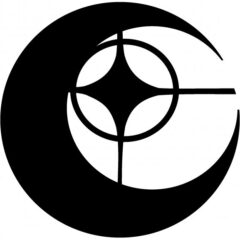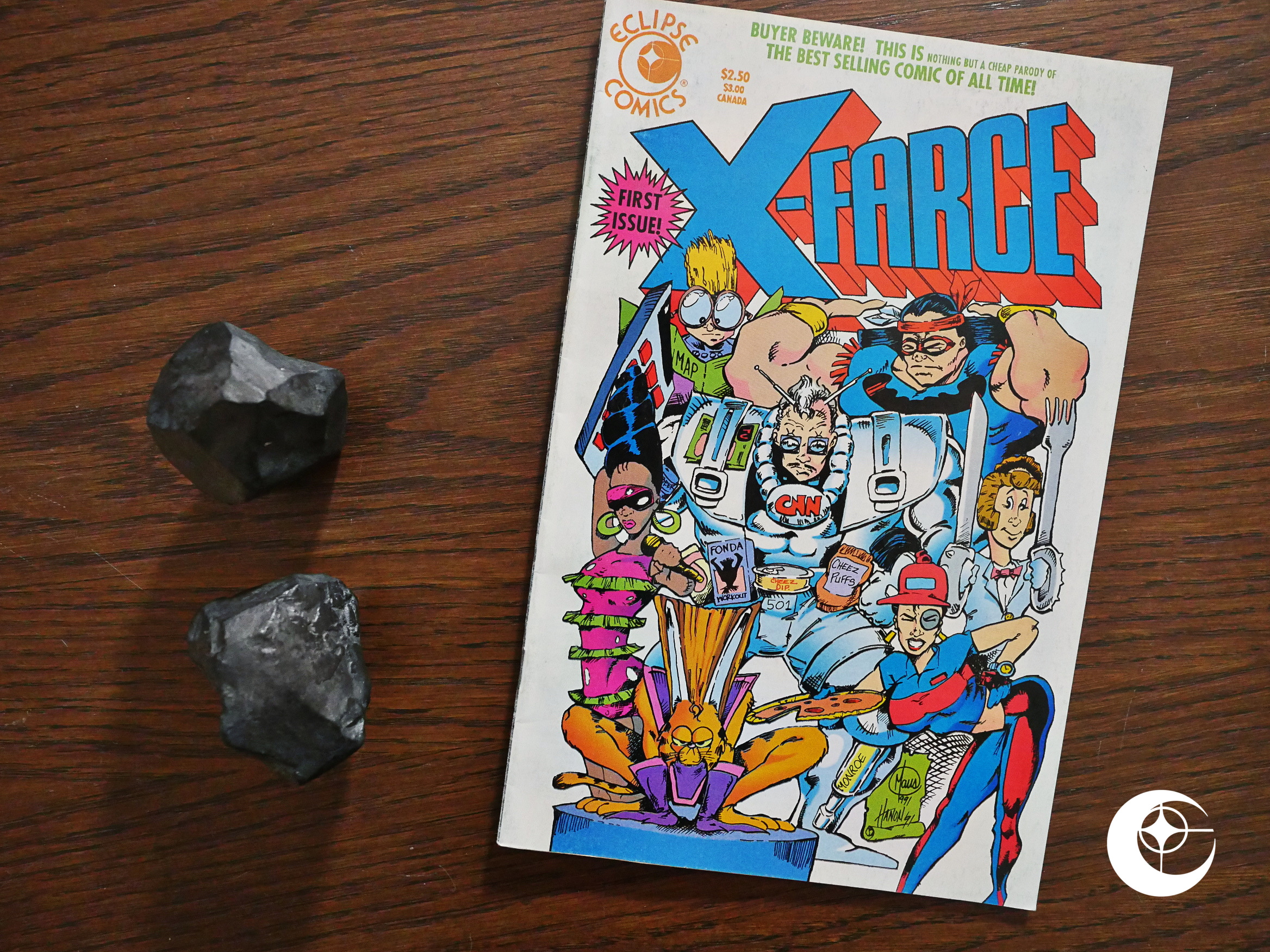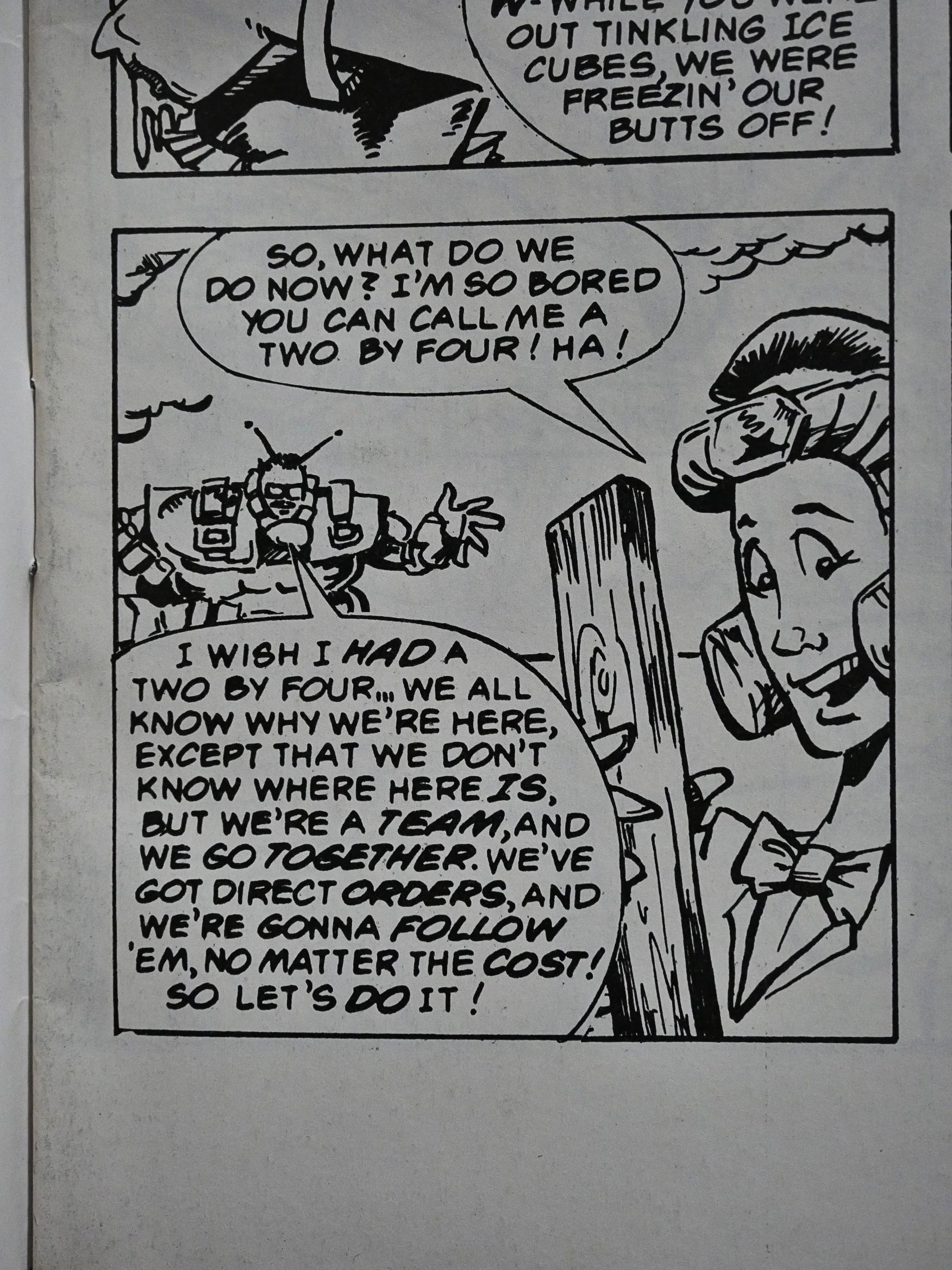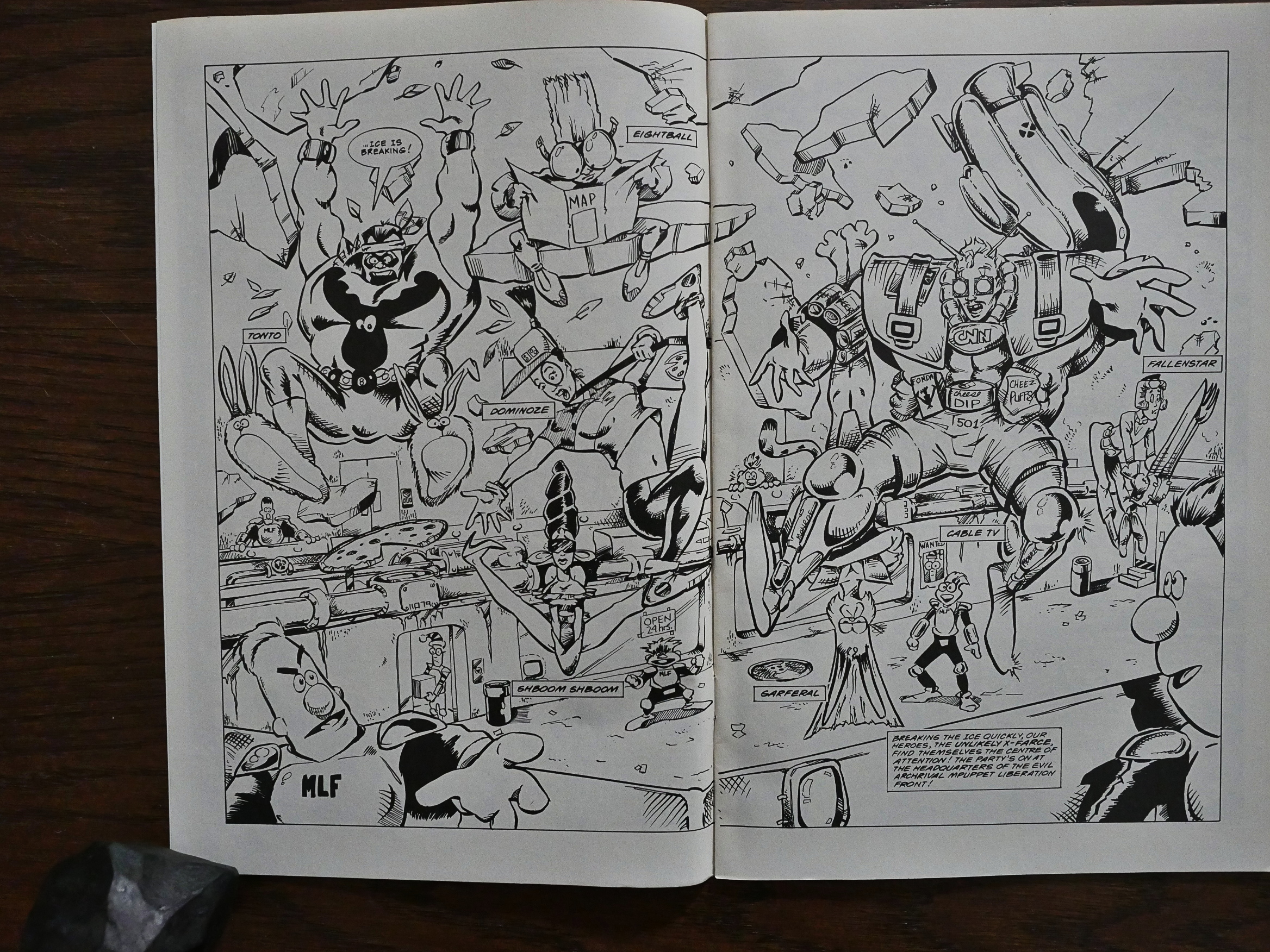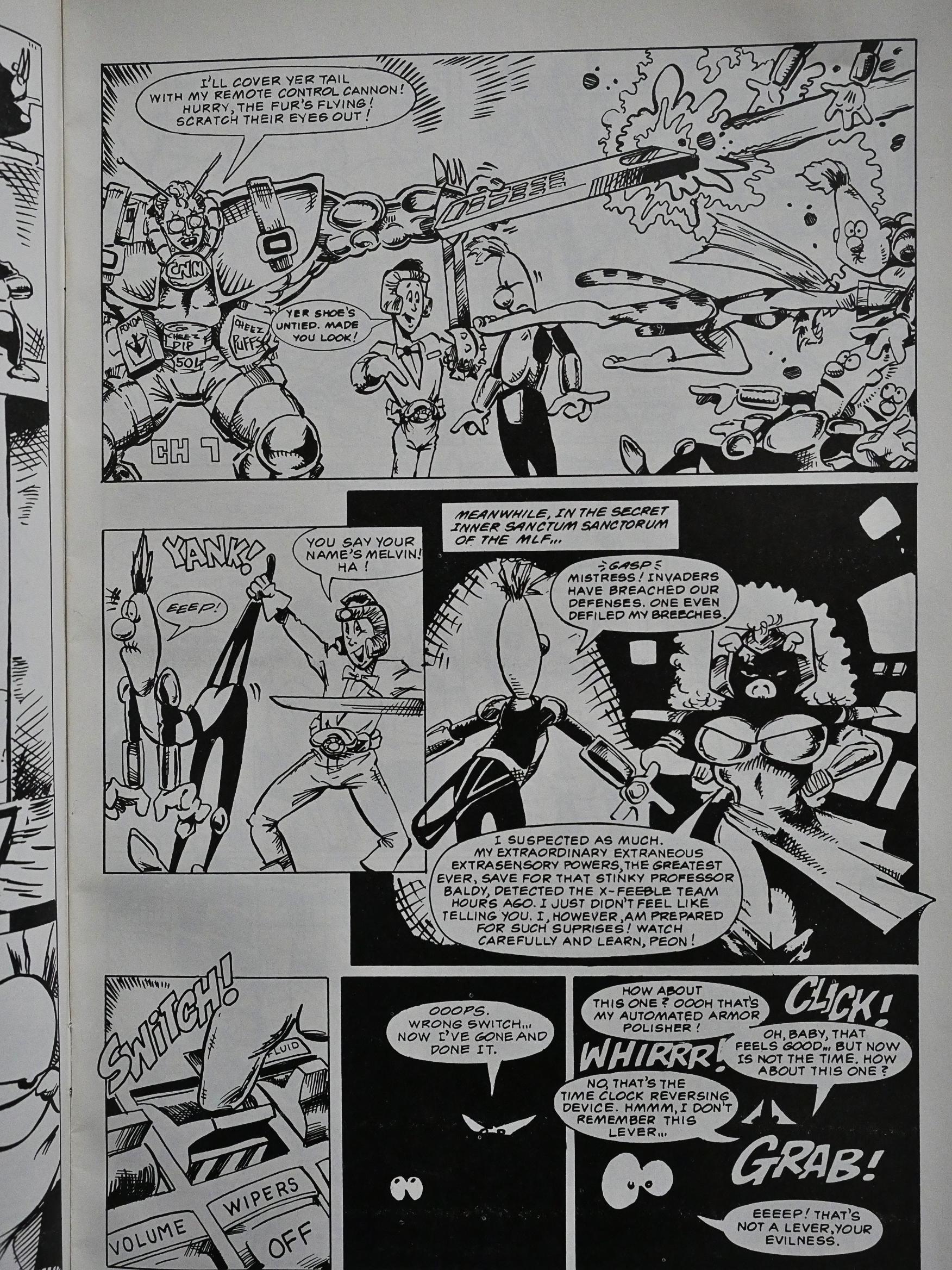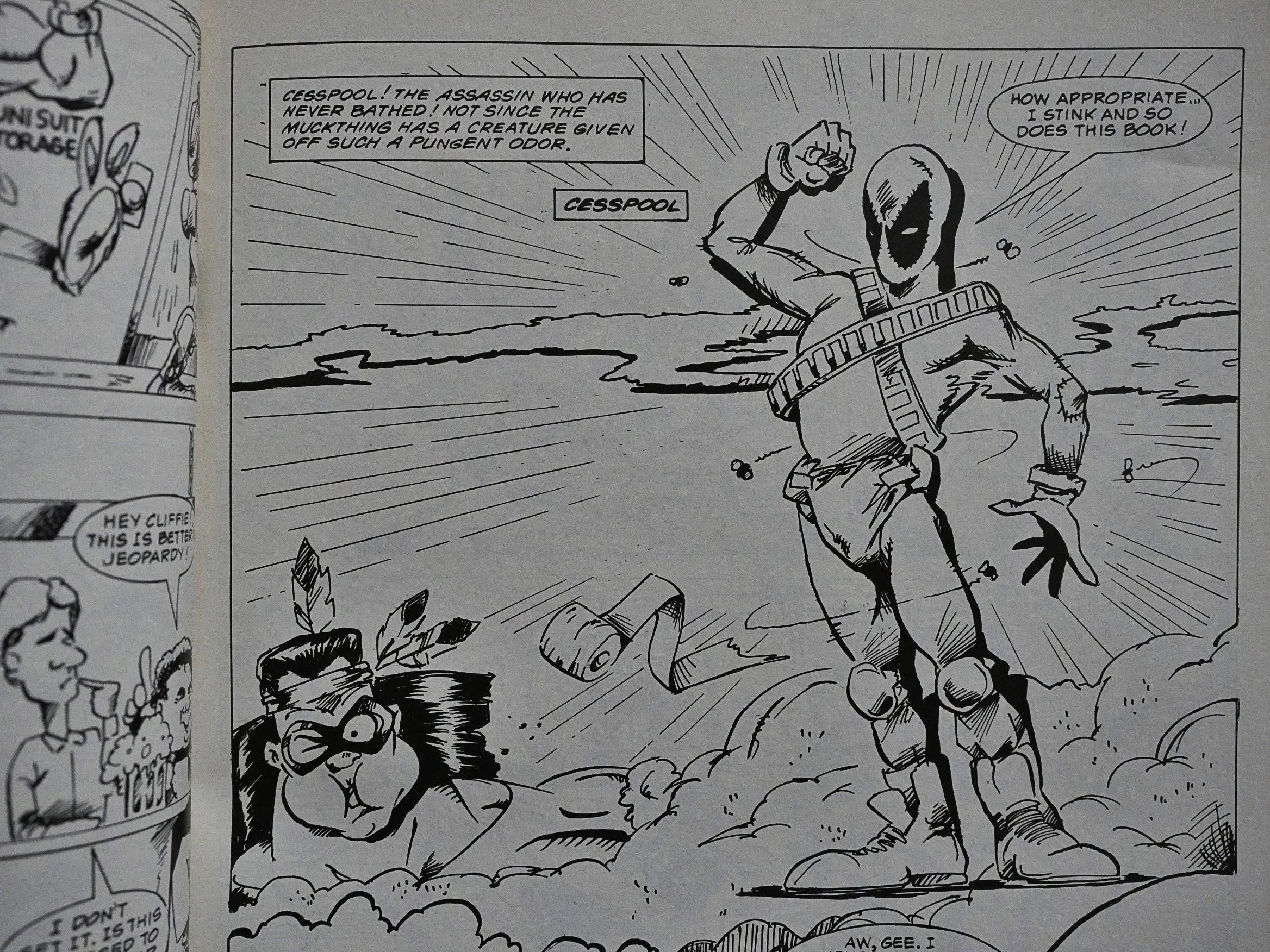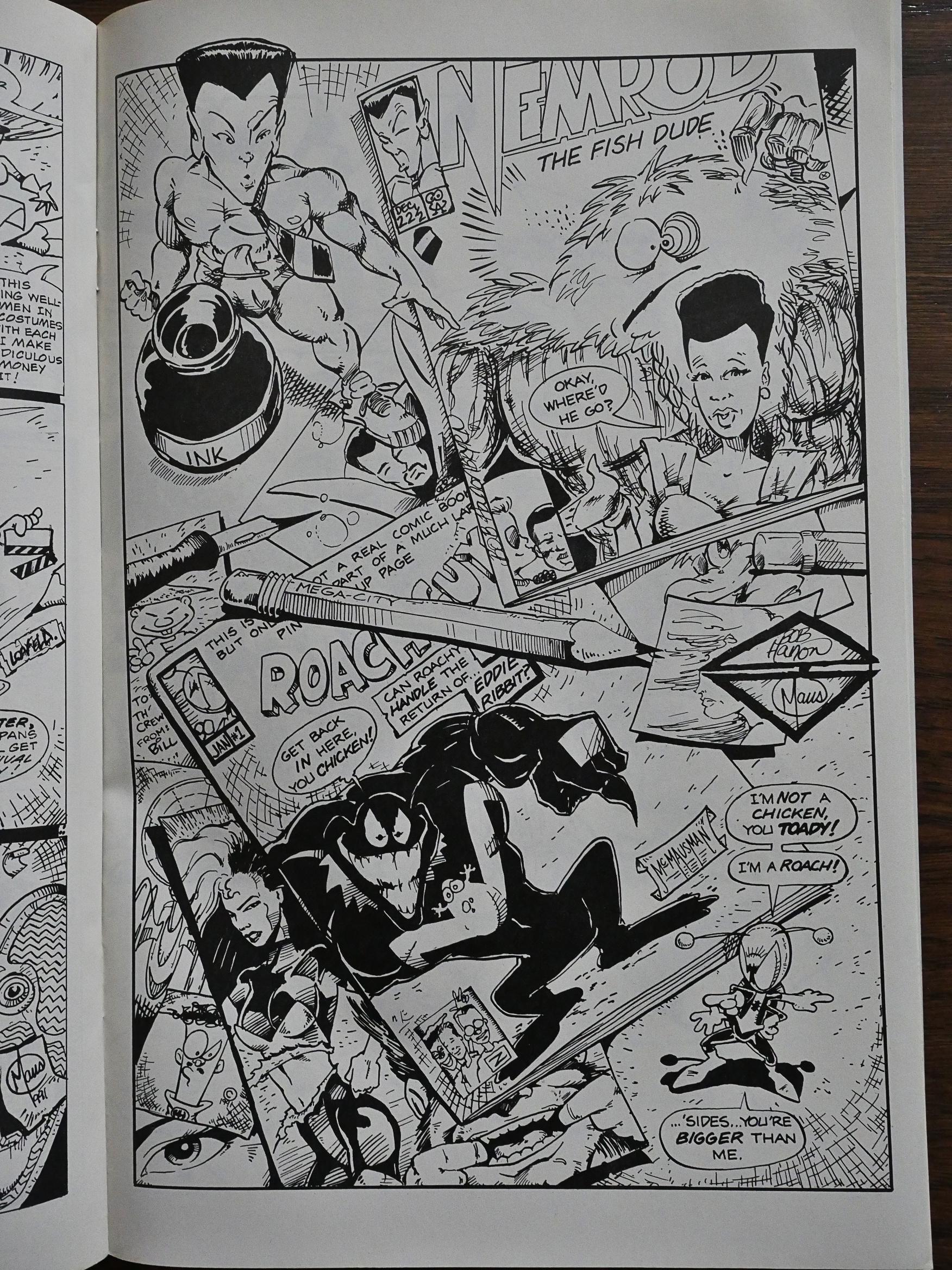X-Farce (1992) #1 by Don Chin, Bob Hanon and Bill Maus.
Let’s party like it’s nineteen eight six!
For several years, Eclipse had been focusing on more expensive comics formats: Graphic novels and “prestige format” $6 fully-painted adaptations. That seemed to wind down a bit during the last half of 1991, and Eclipse started launching new series of (cheaper) floppies.
Sounds like a sensible thing to do to get the cash flow back up: Around this time, rumours had started circulating about Eclipse not being able to pay their bills on time, and creators (like Neil Gaiman) had started withholding their work until they got their next check.
So who does Eclipse bring in to get things flowing again? None other than Don Chin, the person who wrote the allegedly best-selling Eclipse comic book, Adolescent Radioactive Black Belt Hamsters and was instrumental in getting the black and white boom going in 1986. (Followed by the bust that nearly wiped out US alternative comics in 1987.)
So here we have a parody of Rob Liefeld’s X-Force comic book, which had recently launched to huge sales.
Liefeld is an easy mark for parody. He’s so distinctive: All those little lines, everybody looking constipated and shouting at the same time, those tiny feet, all those pouches…
And the artists here basically do nothing with all that. Except for the large shoulders on Cable TV (he’s a parody of Liefeld’s Cable character; get it?), there’s basically nothing in the artwork that references Liefeld.
I haven’t read Liefeld’s X-Force (because I didn’t read super-hero comics for a couple of decades back there; so snooty), so I have no idea whether it’s a good parody of the X-Force origin story or not. I mean, it’s possible.
But it’s all so lazy. Deadpool becomes Cesspool, Boom Boom becomes Shboom Shboom, etc. She has the most successful scene in the book, though: It’s a nice bit of silliness.
But, basically, this really is the black and white boom all over again. It’s a comic that doesn’t have much reason for existing except as an easy cash grab.
I hope it helped.
The best page in the book is probably this Todd McFarlane parody, though.
But perhaps that’s just me being a total grouch. The same creators delivered a followup-up one year later from Parody Press.
I’ve been unable to find anybody on the web admitting to having read this, so I don’t know how it was received.
If I count right, there’s three or four more of these parody comics to follow over the next few months in 1992 from Eclipse. Hard times.
